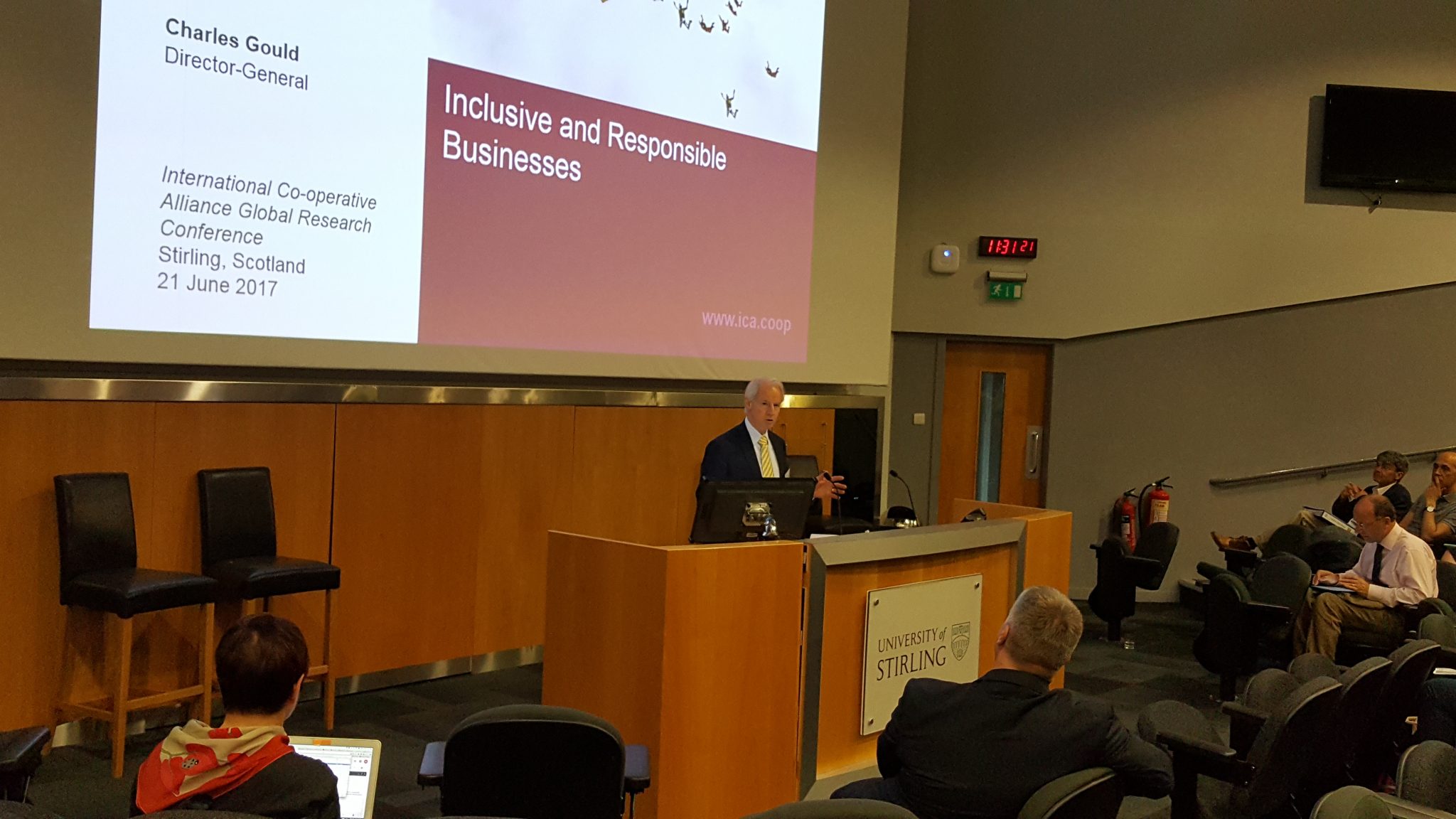How can research help shape policy agendas? Can it help make the case for co-operatives in the economy?
Speaking at the global Co-operative Research Conference in Stirling, Charles Gould, director general of the International Co-operative Alliance, highlighted the importance of research on the Alliance’s agenda.
The conference explored the idea of co-ops as inclusive and responsible businesses. In 2012, following consultation with its members, the Alliance adopted the Blueprint for a Co-operative Decade as a direction of strategy. The document, which focuses on five pillars, sets out priorities for the movement to become the fastest growing business model by 2020.
“The idea was that we ought to be able to make the case that the world needs co-ops in economy,” said Mr Gould, who has been with the Alliance since 2010. “There is a thirst for a different kind of message and we think we have that.”
Related: Co-operative practitioners in Scotland – what do they want from researchers?
Research plays a key role in highlighting the importance of the co-operative business model. Every year the Alliance, in partnership with Euricse, publisheds the World Co-operative Monitor, a global picture of the sector.
The monitor has revealed that co-ops employ 250 million people, and their combined turnover equals the GDP of France. Mr Gould encouraged countries around the world to publish their own monitors.

The Alliance is also trying to influence global policy agendas through new centres of influence such as the G8, the G20 and the EU.
The second key framework for the Alliance are the UN’s Sustainable Development Goals (SDGs). The UN’s sustainability agenda for 2020 builds on the previous Millennium Development Goals (MDGs), which Mr Gould described as “very effective”, arguing substantial progress had been made.
“The UN’s SDGs key to what the Alliance does at policy level,” he added. The Alliance launched an online platform Coopsfor2030, to enables co-operatives to share their stories about how they are contributing to the implementation of the UN’s SDGs.
“This is where co-ops ought to be positioned,” he said.
In the UK co-operative policy and research are also interconnected. Co-operatives UK, the national apex body, has developed a co-operative development strategy, with involvement from various co-op sectors.
One of the key findings is that co-operative innovation tends to emerge regardless of sectors, depending on people’s needs and the ability of co-ops to meet these.
When a community approach is used, co-ops spread, said Ed Mayo, secretary general of Co-operatives UK. But there is also a need for a framework to enable co-ops to grow, he added, and practitioners need to work with academics and identify their research needs.
Mr Mayo also highlighted the importance of data to research and revealed that Co-operatives UK was working with the Alliance to launch a study on co-operative values worldwide to offer a perspective on which are the most co-op countries in the world.
“I back a vision where every co-op is part of a global co-op dataset that is open data that allows us to share data worldwide,” he said.

